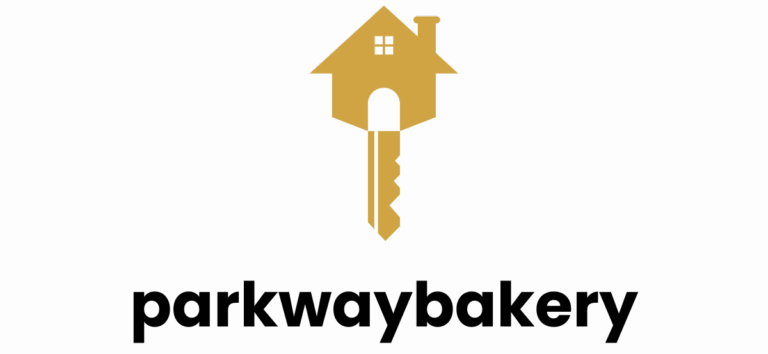Buying a new home is like entering a thrilling game show where the grand prize is your very own slice of paradise. But before contestants can celebrate, they must tackle the ultimate challenge: budgeting. It’s not just about finding the perfect kitchen or that dreamy backyard; it’s about ensuring the numbers add up without sending anyone into a financial tailspin.
Picture this: you’ve found the house of your dreams, but your budget looks more like a horror story than a success tale. Fear not! With the right strategies, budgeting can transform from a daunting task into a fun adventure. It’s time to roll up those sleeves and dive into the world of home financing. After all, who wouldn’t want to turn their dream home into a reality without breaking the bank? Let’s explore how to make that happen without losing your sense of humor along the way.
Table of Contents
ToggleUnderstanding Budgeting for a New Home
Budgeting plays a vital role in the home buying journey. It ensures that individuals can afford their dream homes without financial strain.
Importance of Budgeting
Budgeting serves as a financial roadmap when purchasing a new home. It helps potential buyers determine how much they can realistically spend. Knowing the budget prevents overspending and promotes informed decisions. A well-structured budget factors in additional costs like property taxes, homeowner’s insurance, and maintenance expenses. By allocating funds efficiently, buyers can prioritize necessary expenses, ensuring they maintain financial stability after the purchase. This proactive approach contributes to a smoother home buying experience.
Common Misconceptions
Several misconceptions about budgeting can hinder the home buying process. Many believe budgeting limits options, but it actually clarifies choices. Some think only wealthy individuals can afford to buy a home, when in reality, various financing options exist for different budgets. A prevalent myth suggests that budgeting is overly complex, yet it can be straightforward with the right tools. Potential homeowners often underestimate hidden costs, failing to include inspection fees or closing costs in their budgets. By debunking these myths, buyers can confidently navigate their financial planning journeys.
Creating Your Home Buying Budget


Creating a budget for a new home involves analyzing income, expenses, and future financial commitments. A well-planned budget lays the groundwork for making informed decisions throughout the buying process.
Evaluating Your Financial Situation
Assessing the current financial status is crucial. Begin by calculating monthly income from various sources, such as salaries or bonuses. List fixed expenses like utilities, loans, and credit card payments. Examine discretionary spending on subscriptions and dining out as this can impact overall affordability. Determine how much savings are available for a down payment and emergency funds. Understanding personal debt levels helps in recognizing borrowing capacity. By gathering this information, homeowners can discover how much they can allocate toward their future mortgage.
Estimating Home Costs
Home costs extend beyond the purchase price. Potential homeowners must include property taxes, which vary based on location and property value. Homeowner’s insurance typically costs between $800 and $1,500 annually, providing essential protection. Maintenance expenses account for approximately 1% of a home’s value each year, covering repairs and upkeep. Home inspections, often priced between $300 and $500, unveil potential issues pre-purchase. Closing costs, usually 2% to 5% of the home’s price, encompass fees associated with finalizing the transaction. Incorporating these costs into the budget ensures a more comprehensive financial overview, preventing unexpected surprises during and after the home-buying journey.
Factors to Consider in Your Budget
Budgeting for a new home requires careful consideration of several financial aspects. Understanding these factors helps determine affordability while ensuring financial stability.
Down Payment Requirements
Down payment amounts vary based on mortgage type and lender policies. Conventional loans often require 20% of the home’s purchase price. Some government-backed loans, like FHA loans, allow as little as 3.5%. Buyers must also consider the impact of larger down payments, which can lower monthly mortgage payments and eliminate private mortgage insurance. It’s essential to save early to meet these down payment requirements.
Closing Costs and Fees
Closing costs generally range from 2% to 5% of the home’s purchase price. These costs include lender fees, title insurance, and appraisal fees. It’s advisable to budget for these expenses early in the home-buying process. Some lenders may offer to cover part of these costs, but buyers should always confirm this with the lender. Planning for these fees prevents unexpected financial burdens at closing.
Ongoing Homeownership Expenses
Ongoing expenses play a crucial role in maintaining a budget. Homeowners face property taxes, homeowner’s insurance, and maintenance costs regularly. Property taxes can vary significantly based on location, while insurance rates depend on the home’s size and condition. Setting aside funds for maintenance ensures the home remains in good condition. It’s wise to account for these recurring costs to sustain financial health after purchasing the home.
Tips for Effective Budgeting
Effective budgeting lays the groundwork for a smooth home buying experience. It aids potential homeowners in navigating costs and planning for the future.
Tracking Your Expenses
Tracking expenses provides clarity in financial planning. Use budgeting apps or spreadsheets to categorize monthly expenditures. Analyzing monthly income alongside fixed expenses offers insight into spending patterns. It’s essential to monitor discretionary spending; this can reveal areas for potential savings. Regularly reviewing these categories empowers individuals to adjust budgets. By keeping detailed records, one identifies unnecessary expenditures and emphasizes essential costs. This practice leads to informed financial decisions that align with home buying goals.
Adjusting for Unexpected Costs
Adjusting for unexpected costs is crucial in home budgeting. Allocate a specific percentage of the total budget for unforeseen expenses. Common surprises include repairs, property inspections, and additional closing costs. Maintaining a flexible budget accommodates adjustments without financial strain. Regularly reassessing the budget helps identify shifts in priorities or upcoming expenses. Expect fluctuating maintenance costs by accounting for seasonal changes and wear. A well-prepared budget can cushion against these financial shocks, supporting overall stability in homeownership.







